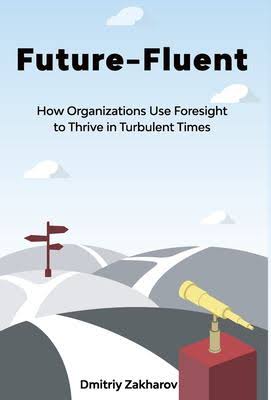I Conjecture: In an infinite multiverse we must exist.
Part One: Inevitable existance
“Everything not forbidden is compulsory.”–
T.H.White, The Once and Future King
 The quote above is from fiction; in reality is anything but. It has been echoed by Nobel physics laureate Murray Gell-Mann and effectively, if not literally, by many other scientists. The message of the random, probabilistic nature of the sub-atomic quantum world is clear: given enough matter, energy and 4-dimensional space time, anything that is physically possible will eventually happen. If you roll the dice enough times, you will get every possible result. If you add an infinite multiverse–and remember, the many worlds interpretation of the multiverse is only one of four types of postulated multiverse–then it is conceivable that every possible set of physical laws exists somewhere. To some, this may appear to be just a restatement of the anthropic principle, and they may be right. Others may say that just the mere fact that we do exist makes this a moot point, and perhaps that could be construed as what I am saying. Admittedly we are getting down to semantics and philosophy as much as science.
The quote above is from fiction; in reality is anything but. It has been echoed by Nobel physics laureate Murray Gell-Mann and effectively, if not literally, by many other scientists. The message of the random, probabilistic nature of the sub-atomic quantum world is clear: given enough matter, energy and 4-dimensional space time, anything that is physically possible will eventually happen. If you roll the dice enough times, you will get every possible result. If you add an infinite multiverse–and remember, the many worlds interpretation of the multiverse is only one of four types of postulated multiverse–then it is conceivable that every possible set of physical laws exists somewhere. To some, this may appear to be just a restatement of the anthropic principle, and they may be right. Others may say that just the mere fact that we do exist makes this a moot point, and perhaps that could be construed as what I am saying. Admittedly we are getting down to semantics and philosophy as much as science.
But to reiterate this conjecture flat out, we exist because it is impossible for us not to. The justification for this statement is hardly original, and the statement itself has at least been alluded to by philosophers since the ancient Greeks. Friedrich Nietzsche expounded it as The Eternal Recurrence. It is the notion that, in a Universe that is infinite in either space or time, everything physically possible must recur ad infinitum. If that is the case, then it follows that it is inevitable that we would exist in the first place and inevitable that we will exist again and again in our current form as well as in every every possible variation. MIT cosmologist Max Tegmark, who as stated in a previous post defined the four levels of “other universes” in the multiverse, has taken this concept to an almost bizarre extreme. He has specifically calculated how far you would have to travel to find another earth with an exact copy of yourself–if and only if our local universe extends infinitely beyond the 13.7 billion light year horizon that we are able to observe. The number makes the Douglas Adams description of the universe as “mind-bogglingly big” appear to be sub-atomically small. It is, in light years, a 1 followed by something like a million billion billion zeroes. I don’t even know how to post that in scientific notation on WordPress. So if our existence is inevitably going to repeat itself in an infinite universe or multiverse, does it not follow that our existence is inevitable in the first place? No, it does not. This does not answer the question as to why there is something in the first place, rather than nothing. In part two of this conjecture I will address this question in both scientific and philosophical terms. And the ultimate answer regarding the impossibility of non-existence will come from the same source as my justification for the conjecture of infinity.
All text in this post ©2012 Mark Sackler





Really have to disagree there, Mark. Infinite monkeys typing on infinite typewriters will type infinite crap. The idea that there are “infinite worlds all occurring at the same time” is pretty much a cop out, don’cha think? It’s kind of like saying no two snowflakes are alike. Yeah, and..?
BTW I don’t think the current thinking in physics is that the Universe is infinite, quite the contrary. Just can’t figure out where the damn center of the thing is….it’s actually right here…or over there..or whereever you measure it from? Ask them about that one sometime.
“So if our existence is inevitably going to repeat itself in an infinite universe or multiverse, does it not follow that our existence is inevitable in the first place?” and you’re right, “No it doesn’t.” That’s just jumping from one mistaken conclusion to another and hurdling to a final non-sequitur. It should be an Olympic Sport.
I believe we are here because we choose to be here, to enter physical existence from a higher dimension, which we are not usually able to understand completely, to learn what existence is. To feel love, and pain and joy and, use that experience to further define our own evolution in whichever direction we choose to take it. Most of this is in the Seth Material by Jane Roberts among others.
I just think the whole infinity idea is misguided but, I’ll wait to hear your explanation 🙂
I’m just sayin’ 😉
You’re entitled to your opinion. And note the condition “in an infinite multiverse.” I’ve already said I’m an agnostic on that question. But the bottom line is that we do exist (or we assume we do anyway) so the onus may be to prove otherwise.
If the collapse of the wave function among the possibilites results in our reality, does not that suggest indeterminism? Didn’t the uncertainty principle put to rest the notion that given a supercomputer with enough capacity the future could be determined? Doesn’t the multiverse theory then contradict the very principles that led to it’s hypothesis?
An interesting point, but in my opinion it does not. The fact that everything physically possible must happen, given enough time and space, does not mean we can predict when and where it will happen, any more than you can predict which coin flip will be heads and which will be tails. Flip the coin enough times and you will eventually get a very unlikely result–say 20 tails in a row–but you will never be able to predict WHEN it will happen.
Ok so here is my confusion with this idea then. Being that quantum theory supports indeterminism then the concensus is that if we could start the universe clock over the resulting universe would be very different than it is now. However with infinite multiple universes there would be at least one that is exactly as it is now with the exact same events repeated which would render probability meaningless
Again, that is not the case because you can never predict WHEN this will occur. Every roll of a die must eventually occur given enough rolls…but you could get seven 5’s in a row, or go a hundred rolls between 5’s, and that is where the indeterminacy is. Deutsche goes so far as to assert that the many worlds multiverse is required for both indeterminacy AND free will. He asserts that the individual universes within it are static and deterministic.